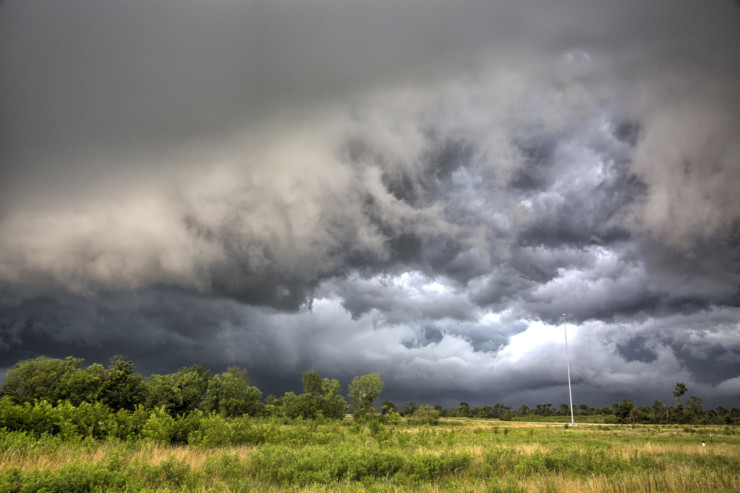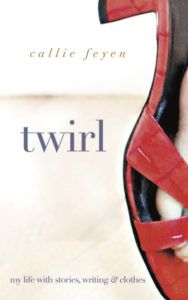My friend Jaime and I are on what is supposed to be an 8.5 mile run. It is a Sunday morning, and the sun is shining like a happy ending in a Disney movie. It is perfect weather for a run, perfect weather for being outside.
Jaime and I live in the same neighborhood, but because of the length of our run I suggested we start on the north side of town, next to the Huron River. “To see something else,” I explained.
Normally we run a path around our neighborhood that leads to a loop around The Big House, the University of Michigan’s football stadium. I always get my second wind there, but I also know that no matter where we start from, this will be mile 3. Knowing I still have 5.5 miles to go will not bring on a second wind. For this run, the longest I will have ever run, I need to not know where I am going. I’ll need to focus on something I haven’t seen before.
Running does not come easily to me, but today it feels particularly difficult, and I’m not sure why. I feel hefty. I can’t control my breathing. I’m hunched over. I can’t figure out what’s the matter.
At one point, a runner zooms past Jaime and I.
“Look how easy he’s making it look,” Jaime says.
“I kinda hate him,” I huff.
We get to a bridge, and I tell her I have to walk. I am angry and disappointed with myself that I said it. I check my phone to see how far we’ve gone.
“5 miles,” I tell her.
If you’ve been in labor, you know that the magic measurement is 10 centimeters. To hear anything less than that is, well, catastrophic. This was the similar response of Jaime and I upon learning we had another 3.5 miles to run.
“I don’t think I can do it,” I tell her. I can’t believe I’ve said this out loud. Something feels definitive.
Jaime starts to run, and says she thinks if we go over another bridge and through the woods — like we’re in some twisted Christmas carol — we should get close to 8.5 miles. My legs feel like spaghetti. This is the worst run I’ve ever done.
Running with friends is new for me. The easy answer is that it’s difficult for me to talk and run at the same time. The more complicated response is that when running becomes particularly grueling, as it is now, an uncomfortable or painful thought about myself pops up. It’s not that I wallow in it, but I allow myself to fully feel it. And feeling it, all of it, helps me take care of it. As much as I wish I didn’t, I worry about what people think of me. I worry about being good enough, about making and keeping friends. Fighting these demons while I run helps me accept myself. It helps me be okay with who I am and to allow for who I might be becoming.
I can feel a wrestling match with myself begin, and as we step on the bridge that will take us over the river, the wind blows and knocks me off what little balance I have left. I remember that this morning, though the sun was shining and it felt almost like summer, the weather report claimed there’d be a cold front moving through. I was hoping to get the run finished before it arrived, but it beat us.
I’m mad at the wind. I’m mad at the sun for not fighting the cold front. I’m mad at the mushy mud for the mess it’s making out of my cute red shoes. I’m mad that all the races I’ve signed up for have been cancelled. I’m made at this quarantine. I can’t go to the library. I can’t watch my girls play soccer. I’m mad at myself for complaining about all of this. I am acting like I’m 5 years old.
Jaime asks me something about writing, probably to take my mind off the run and keep me talking. I don’t give much of a response, so she asks me another question, this one having to do with the uncertain components of writing — becoming blocked, being unsure how to move forward with a story, wondering if my writing is any good or whether it will ever become good.
“I don’t have time for doubt,” I yell. “I don’t have time for fear!”
It’s the angriest she’s ever seen me. It might be the only time she’s ever seen me angry, now that I think about it.
“I can’t do it,” I say, and slow to a walk. I am unraveling. I can feel it in my stomach, and if I am out here much longer, I’ll start to cry.
We sit on a bench inches from the river to cool off and drink some water before heading to our cars. This is the same spot where I began writing the second to last chapter of Twirl. It’s about a walk Harper and I took along this same path and the wild things we found that day: a boy in a canoe, the river’s current, butterflies, and Harper and me. It’s about feeling a new season coming on, hoping for and fearing it and not always knowing which is which but being ready all the same. This place is a hopeful place for me, and right now I would like to feel hopeful.
A cloud covers the sun and sends ripples along the river, as though the water’s shivering. I look up to see if it will pass, hoping Jaime and I can sit and talk for a bit longer. There is no sunshine in sight. The clouds will be here for awhile.
“I’m freezing,” Jaime says.
“Me, too.”
We can’t go to a coffeeshop and talk. We can’t sit in the car or on one of our porches.
All we can do is say goodbye.
Try It
Recently I’ve learned of a form of poetry called Baiku. It’s a haiku that says goodbye to something or someone. I read about it the day after my disastrous run with Jaime, and I wouldn’t say I felt hopeful for this new season that is upon us, but I think I might see the beauty in honoring the sadness and grief that comes with saying goodbye. As sad as I feel at times during these days, I wonder if saying goodbye might allow me to say hello to something else. Maybe it will allow me to learn what this season can offer me, and I, it.
This week write a baiku poem bidding farewell to a season and all it held. May you find space to see seeds of what this new season could bring.
Photo by Patrick Emerson Creative Commons, via Flickr. Post by Callie Feyen.
Browse more poetry prompts
A Writer’s Dream Book
“Callie Feyen has such a knack for telling personal stories that transcend her own life. In my years in publishing, I’ve seen how hard that is—but she makes it seem effortless, and her book is such a pleasure. It’s funny, it’s warm, it’s enlightening. Callie writes about two of the most important things in life—books and clothes—in utterly delightful and truly moving ways. I’m impressed by how non-gimmicky and fresh her writing is. I love this book.”
- Poetry Prompt: Courage to Follow - July 24, 2023
- Poetry Prompt: Being a Pilgrim and a Martha Stewart Homemaker - July 10, 2023
- Poetry Prompt: Monarch Butterfly’s Wildflower - June 19, 2023


Richard Maxson says
I loved reading this post, Callie. Here are some Baikus:
here are the flowers
for which you would not return
smelly vase water
Lovers say goodbye
fade away in waking days
but dreaming finds them
Your long hair I cut,
reluctantly yesterday,
now birds weave a nest
What hides in the ice
knows time well and is reborn,
so too all things melt
Bethany R. says
Thanks for sharing this post, Callie. You have such a fresh way of expressing yourself in writing.
I’m intrigued by the idea of Baiku, and enjoyed reading Richard’s poetry. 🙂 Still thinking about the bird nest.
Megan Willome says
The mind is a ridge
he summits, then circumvents—
sits in its green shade
Dana Kinsey says
Callie, I love this article. Just finished Twirl and immediately started back at the beginning. As a teacher and fashion lover, it landed right next to my heart.
Dogwood confetti
denim jacket weds sundress
torrid honeymoon